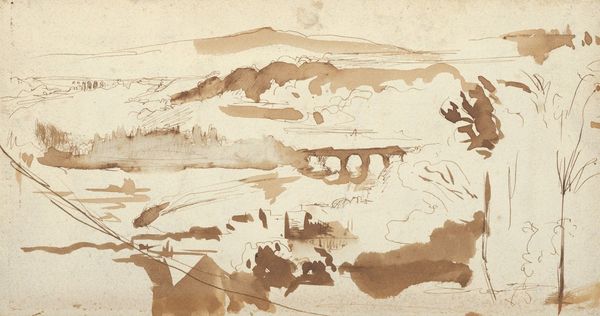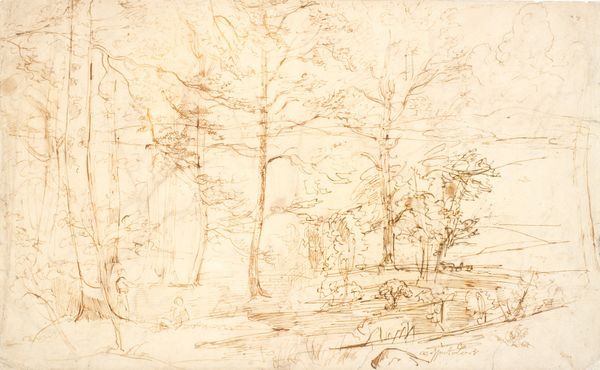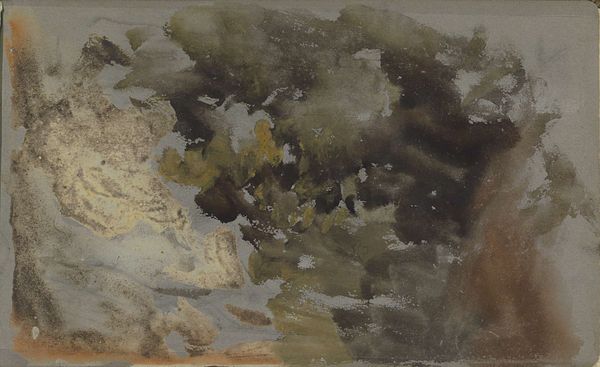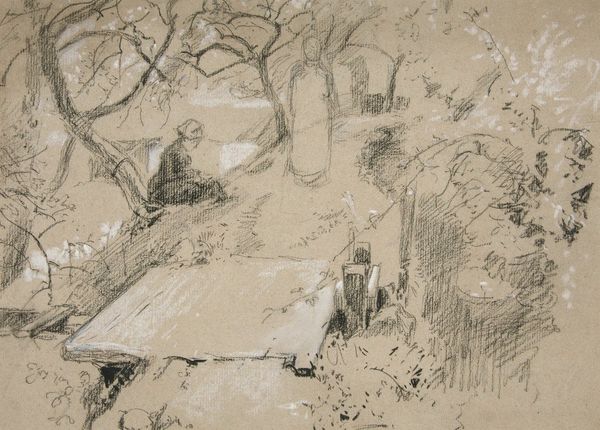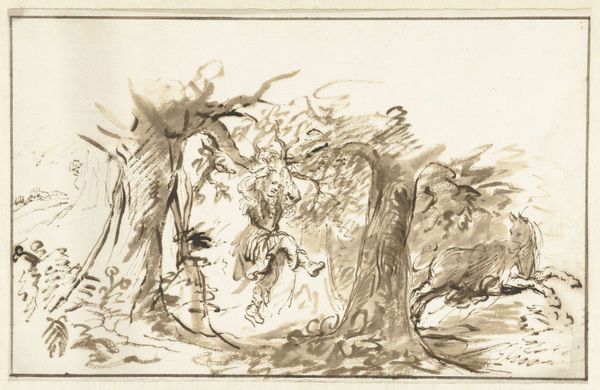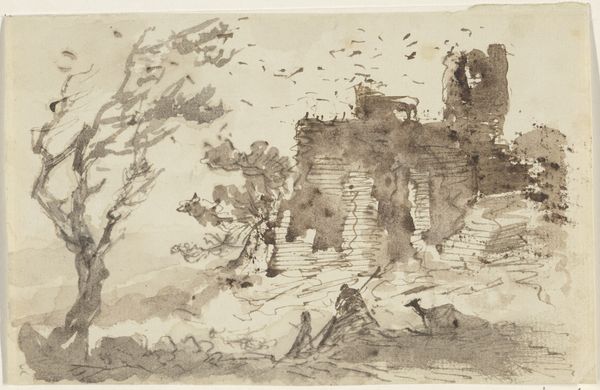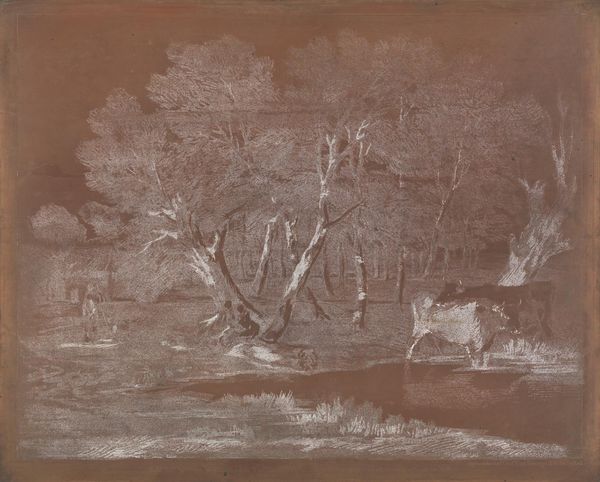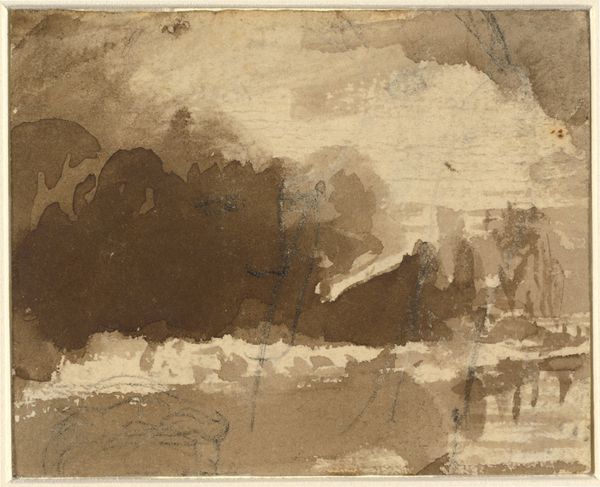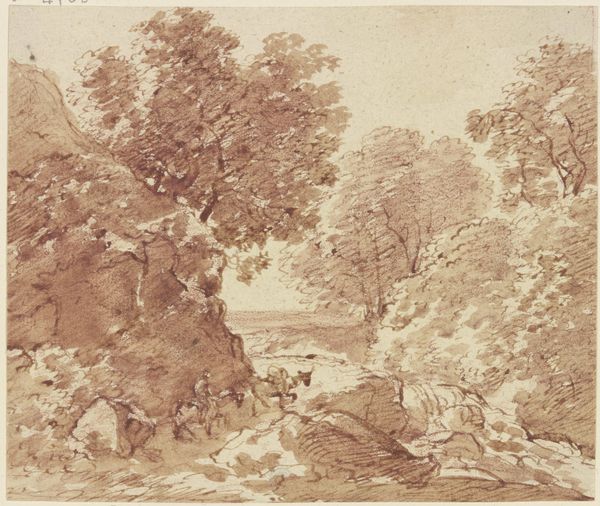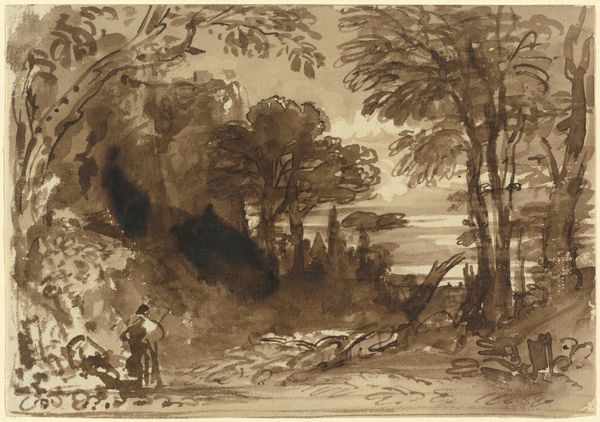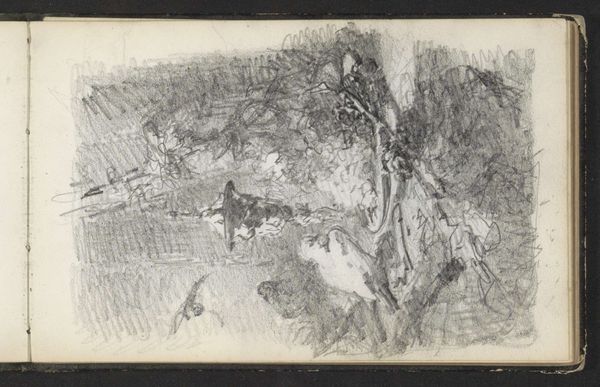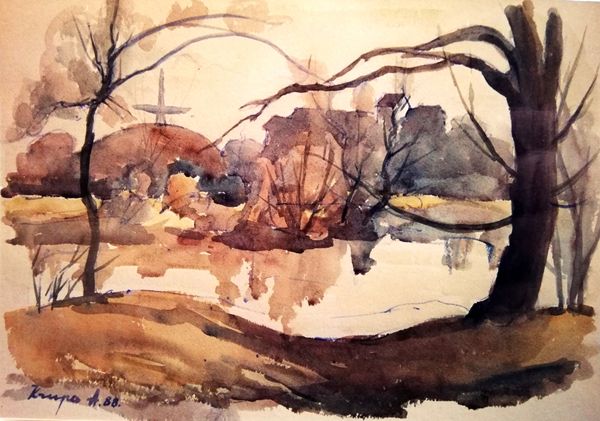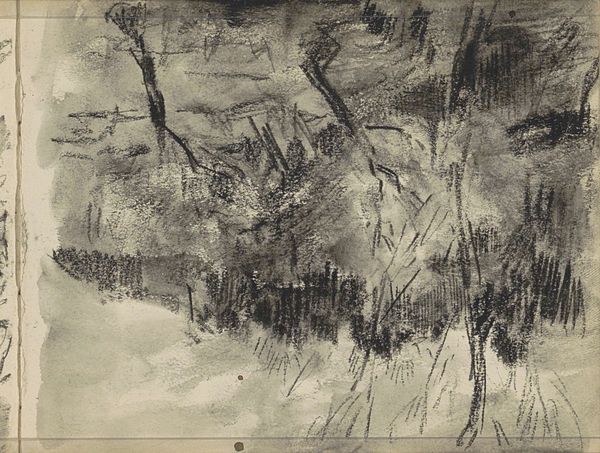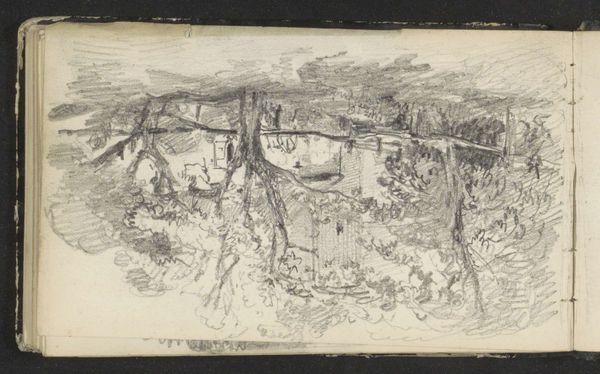
drawing, plein-air, ink
#
drawing
#
plein-air
#
landscape
#
charcoal drawing
#
oil painting
#
ink
#
romanticism
#
cityscape
#
watercolor
Copyright: Public domain
Curator: Here we have John Ruskin’s "View of Bologna," created around 1845 using ink and watercolor. What are your initial thoughts? Editor: Oh, wow. Sepia-toned and dreamy. Like a forgotten postcard. It has this beautiful faded grandeur, as if Bologna is peeking shyly from behind a veil of trees. Curator: It's fascinating how Ruskin positions the city within the natural landscape, isn't it? We have this ordered civilization framed by the wildness of nature. This reflected the romantic ideals prevalent at the time. Ruskin emphasized close observation and plein-air work, capturing fleeting atmospheric conditions, the sense of light, air, and natural texture. Editor: Definitely getting that romantic vibe. I’m just imagining Ruskin sitting somewhere, battling the Italian sun, desperately trying to capture that distant tower before the light shifts. You can feel that struggle in the spontaneous line work. But did Ruskin always gravitate toward landscapes? Curator: Yes and no. Ruskin’s writings, particularly "Modern Painters," championed the truth to nature found in Turner's work and in art generally. While landscapes formed a core part of his aesthetic theory, he also saw art as fundamentally intertwined with social and moral issues, and his aesthetic judgments were definitely political in that he supported the democratization of art for public viewership. He believed in the moral importance of beauty. Editor: Ah, so not just pretty pictures for rich people! I guess in some ways his message still resonates, no? We always seem to be fighting over who gets to experience beauty and how accessible it is. What I love most about the artwork is how he creates a sense of depth using essentially a monochrome palette. Curator: Precisely. And it's not just depth, it's a dialogue. He sets up a visual and philosophical tension. The city, with all its implied social structures and history, is juxtaposed with the "purity" of the natural world. This reminds me of 19th century debates around industrialization and urbanization. He questions what is being lost in the name of progress. Editor: It’s true, a single glance prompts so many questions about society and our relationship with nature! Well, now, looking at Ruskin's "View of Bologna," I see a visual poem of contrasts and quiet commentary about a world in transition. A fitting image to consider today. Curator: Indeed. And hopefully our conversation offers an invitation to delve further into these important questions of how we perceive art in both public and private settings.
Comments
No comments
Be the first to comment and join the conversation on the ultimate creative platform.
